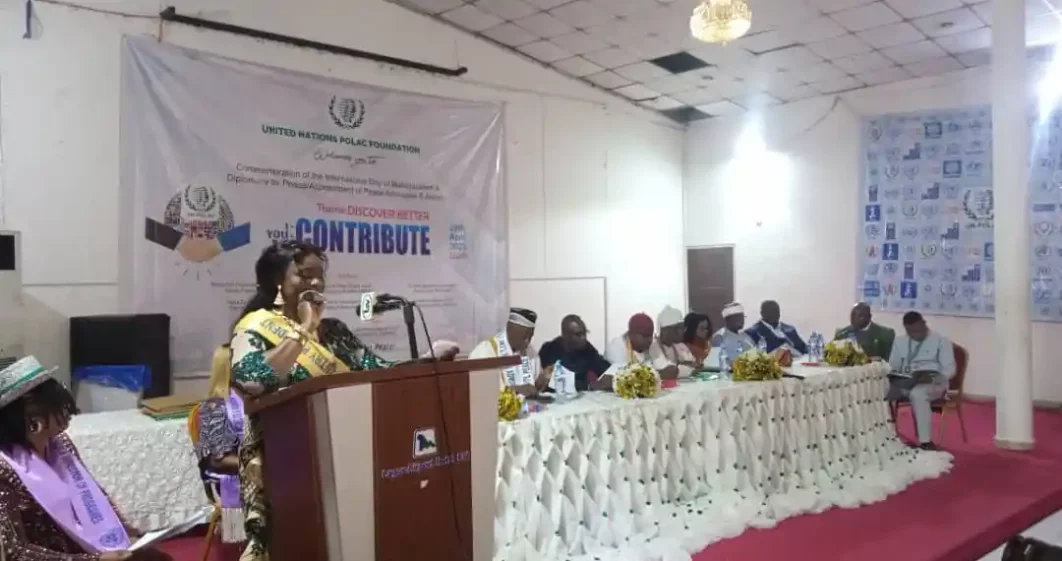
The United Nations Positive Livelihood Award Centre (UN POLAC) has taken a significant step to boost Nigeria’s development initiatives by launching its new development committee.
This move aims to enhance the country’s progress and growth, building on the UN’s existing efforts to support Nigeria’s development agenda.
Speaking at the event, the Director General and Chairman of the Board of Trustees of UNPOLAC, Prof. Lion Halo Eton, who was represented by the Secretary General of UNPOLAC, Amb. Patricia Agu, explained the need to initiate effective programs that would address the basic needs of humankind.
Eton encouraged the committee to develop a strategic plan that combines action and vision for a brighter future.
“The future is not out there, waiting to be met; the future is here, waiting to be created. It is in our hands. Today, I am convinced that the carefully selected high-profile committee will act as good ancestors by linking our ideal of service with the generation to come,” Prof. Eton said.
On his part, the Deputy Country President of UN POLAC, Amb. Peter Ohagwa, stated that the inauguration marks the beginning of a focused effort to advance the United Nations’ Sustainable Development Goals (SDGs) in Nigeria.
During his inaugural address, Ohagwa commended the 22 newly appointed committee members for their selection from a pool of over 500 candidates, stressing the significance of their roles.
“Many are called, but few are chosen,” he noted, underscoring the high expectations placed on this elite group tasked with shaping critical policies for national progress.
The committee, chaired by Amb. Lydia Okodogbe, includes prominent figures such as Amb. Dr. Henry Oroh and Amb. Sarah Ajose-Adeogun, serving as Vice Chairman and Secretary, respectively.
READ ALSO:AAU debunks financial impropriety allegations against governing council
Ohagwa outlined the committee’s five subcommittees: Infrastructure Development, National & International Diplomacy, UN POLAC Peace College Restructuring, MDGs to SDGs Realization, and Funding & Donor Agencies. Each subcommittee is charged with formulating innovative strategies and policies to effectively address Nigeria’s socio-economic issues.
The Deputy Country President noted the importance of collaboration, urging members to extend their efforts beyond national borders to partner with organisations sharing similar goals.
“Your collective efforts will be vital in raising awareness of critical issues and promoting sustainable development across all regions of Nigeria,” he stated.
Also speaking, the chair of the Development Committee, Amb. Dr. Mrs. Lydia Okodogbe, expressed her goal of collaborating with every committee member to develop plans that will facilitate the realization of UN POLAC’s overall objectives and the vision of the United Nations.
She said, “My future plan is to see UN POLAC take its rightful place at the forefront alongside sister agencies like UNESCO, UNDP, UNICEF, and others.”
Mrs. Okodogbe advised the newly inaugurated members to take action and complete tasks promptly, while being committed and resilient in achieving their goals.
Amb. Dr. Henry Nnakaihe, a member of the Development Committee, also shared his commitment to working collaboratively with other members to realise their vision and build a better future through action and determination.
Also a member of the committee and a renowned cleric, Prophet Josiah Chukwuma Onuoha stressed the need for collective efforts in addressing the current challenges facing the country through developmental strategies and partnership drives.






